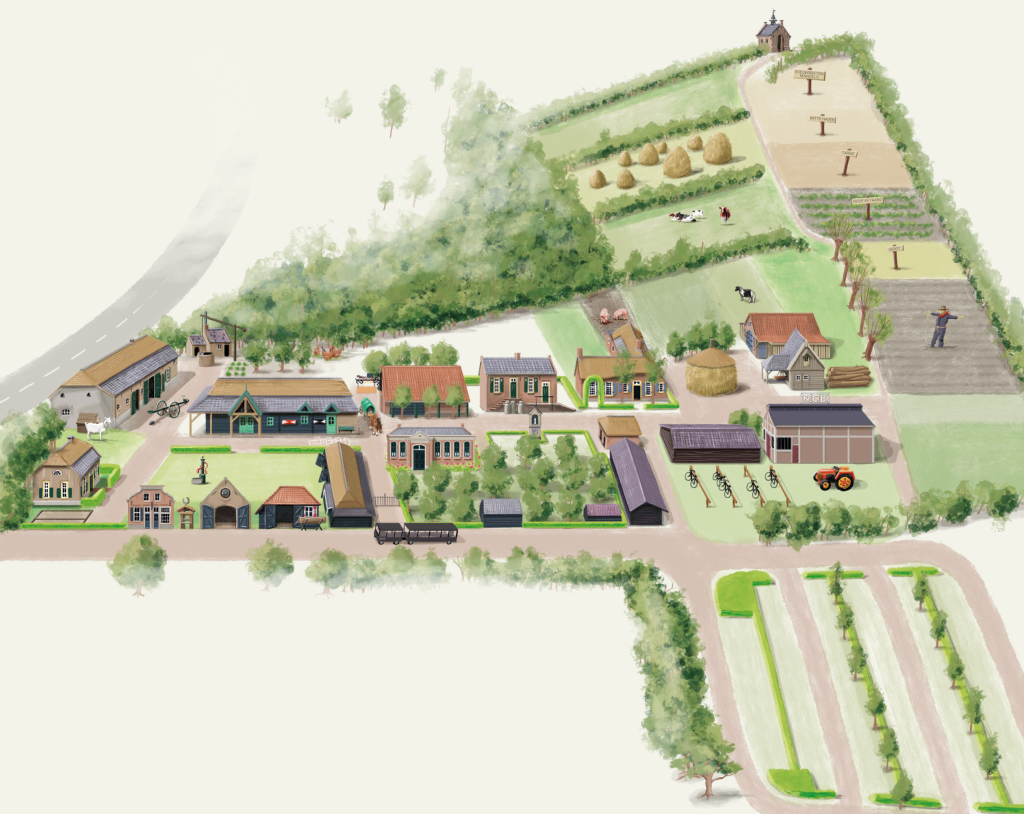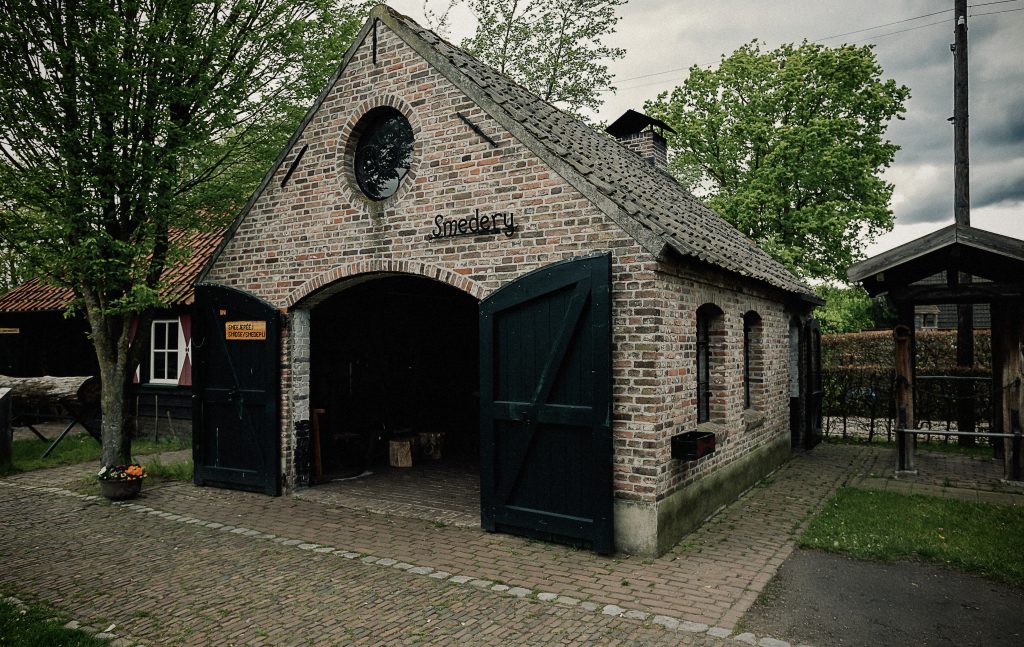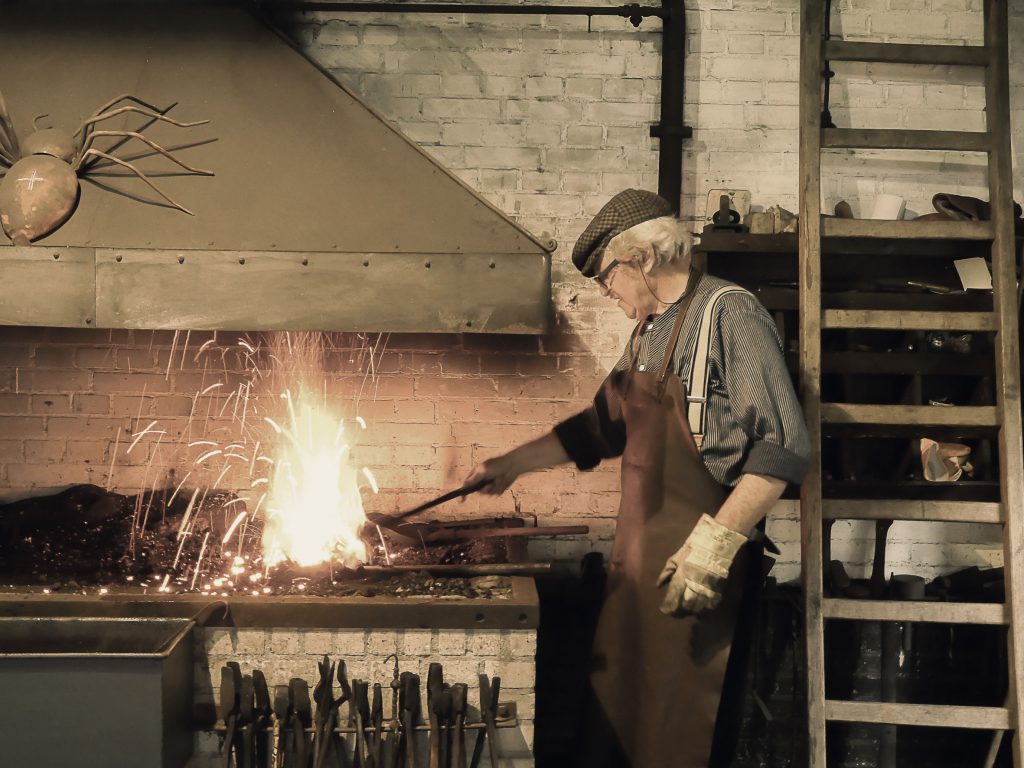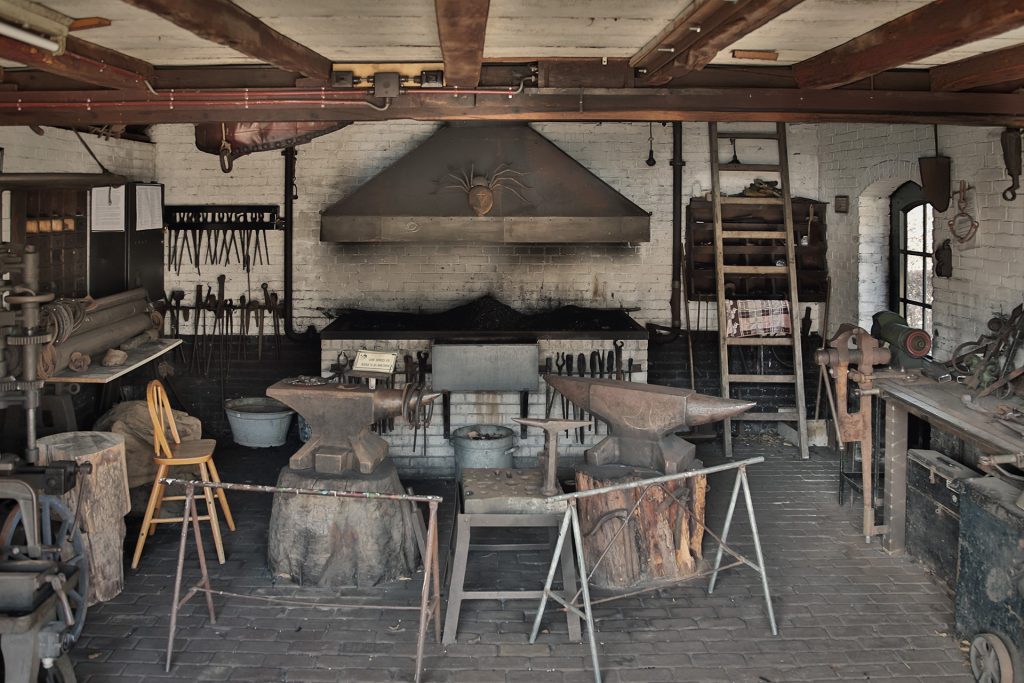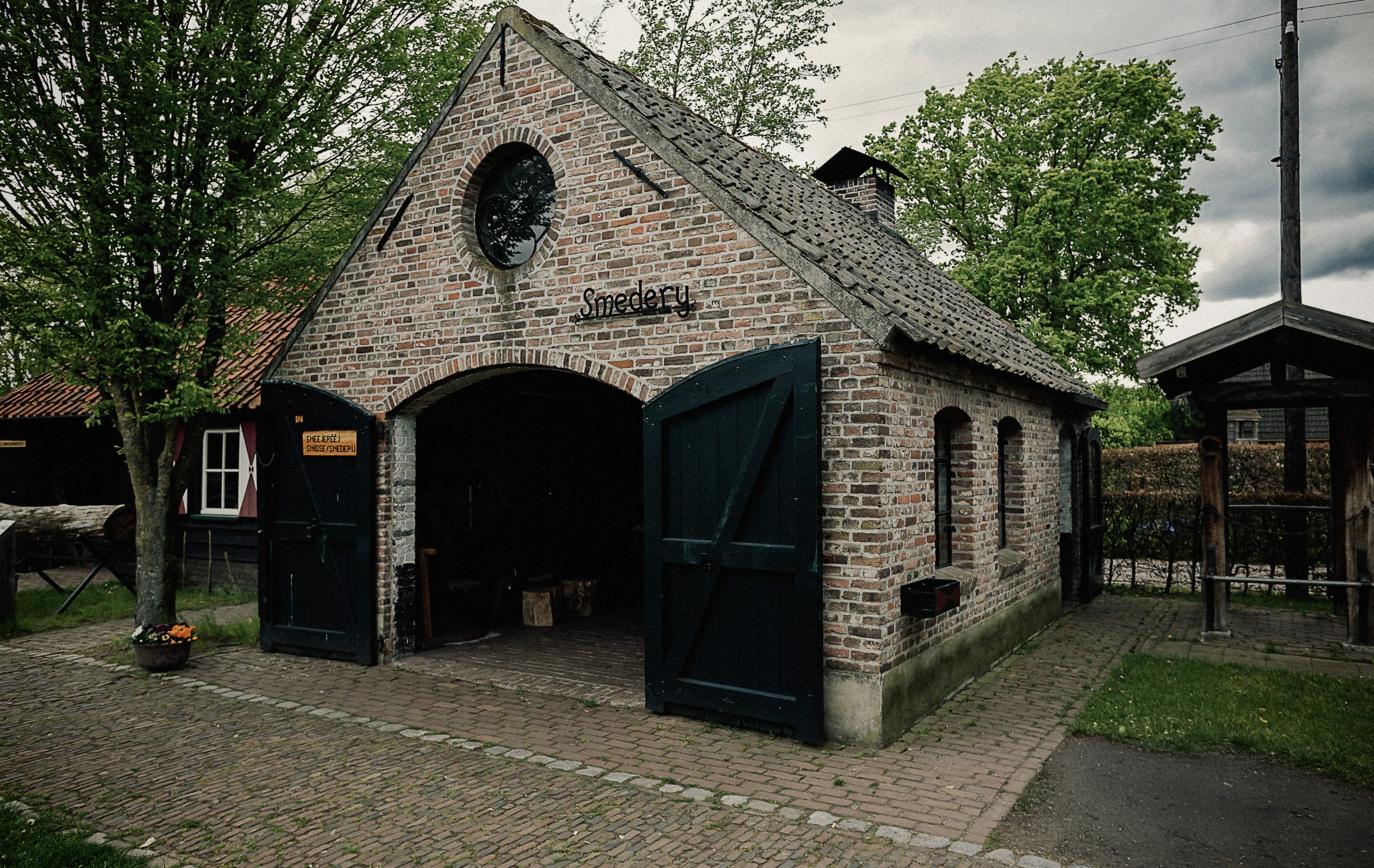
The Forge
Between 1900-1940, the blacksmith was crucial. He manufactured and repaired essential tools such as agricultural implements and horseshoes, and was central to both the local economy and social life. The forge was a distinctive place with a blacksmith's fire and robust tools, where iron was forged on an anvil.
The work of a blacksmith was essential in the period 1900-1940, especially in rural villages where technology and industry penetrated more slowly than in the cities. A village blacksmith played a vital role in the community. He manufactured and repaired tools and objects that were necessary for daily life and the local economy.
The main activities of blacksmithing include the forging of iron and other metals. This process involved heating metals to a point where they became malleable. Then, the blacksmith used an anvil and hammer to hammer the metal into the desired shape. Typical products that a blacksmith made were agricultural implements such as plows and hoes, as well as horseshoes for horses, essential for transport and field work.
The forge itself was a characteristic place in the village, often recognizable by the sound of the anvil being beaten and the sight of sparks flying from the metal. The interior of a forge was functionally furnished, with a large forge fire in which the fire and heat were generated in order to be able to forge the iron. Coal or charcoal was often used as fuel. In addition to the blacksmith’s fire, there were heavy, robust tools such as tongs, hammers, and files, and a water trough to quickly cool the hot iron.
The blacksmith was important not only for his skills in blacksmithing, but also as a focal point in the social and economic life of the village. He often acted as an engineer who could solve problems and provide customized solutions to the diverse needs of his fellow villagers.

